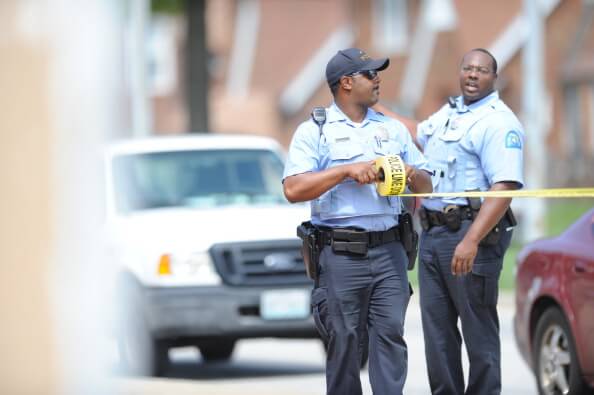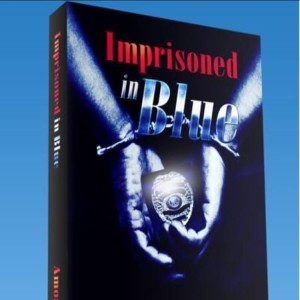Imagine being awakened by the body’s internal alarm clock and prior to putting together a group of collective thoughts, your heart plummets to the depths of its soul. Peering at the reflection in the mirror while firmly gripping your toothbrush unhappy and emotionally ill-prepared for the challenges you were forced to undertake on a daily basis. After clothing yourself, eating or drinking some semblance of nutrition and enduring traffic to reach your destination, you arrive at your location only to feel the pit in your stomach grow deeper with each advancing step toward the building’s entrance. For many of us, that’s a feeling we’ve grown accustomed to on a daily basis. Instead of satisfying our appetite for independence and entrepreneurship, we jump onto life’s conveyor belt and run at a frenetic pace in an attempt to keep up with the world’s constant changes. Realizing if we were to ever teeter off balance, slow our speed or stop completely without an alternative, we stand to lose everything we’ve worked so hard to build. So try envisioning the battle one must undergo when they’ve sworn an oath to “serve and protect” in the interest of public safety when they’ve reached a point where that desire no longer drives them. Where underneath the tactical gear, Hi-Tech boots and agency issued uniform dwells a person uninterested in being trapped in the confines of what the “shield” symbolizes. This was the case for former police officer Amos Mac, Jr. A crusader on the side of “right” and what’s just; a martyr for having those same principles and wanting to exhibit them to the public at large. In an occupation where secrecy and upholding the “code” is paramount and having upstanding moral values is often times frowned upon.
As an African-American in today’s society, the desire to be a police officer is far down on the list of occupations one wants to join in the workforce. Aside from being labeled a “snitch”, “5-0” or the “police” when around your peers, there are many other pursuits that appear more lucrative and pleasing to eye. The images of police officers abusing their authority are visible on every television set and social media site around the country. So as early as adolescence, many children’s aspirations are endeavors that require little to no education and don’t come with the stigma of being labeled a “Narc”. Why become a doctor, dentist, scientist, police officer or engineer, when those professions aren’t seen as any sort of accomplishment or aren’t visible in the mainstream. It’s much easier to become a model, video vixen, athlete, or drug dealer. In that world, you get exposure, flash and the opportunity to make what appears to be easy money. However, what isn’t discussed are the consequences of making those career choices and how not having a formal education will hinder one from progressing; leaving the pursuer underemployed if those endeavors fail. Mac, a Black male, was no different. He never thought that during his formative years he’d be a police officer. It wasn’t until his interaction with a Community Resource Officer at a local middle school changed his perception of the field. In Amos’ own words he explained that the “brother” (an African-American officer) was cool and encouraged him to join the force. He saw similarities with the officer and felt that if he joined an agency, he’d be able to make a difference. In his mind he’d utilize the resources available to him, and through his actions and diligence cultivate a relationship that had long been severed between the force and community. After careful thought, he decided to join and submitted an application. Upon being accepted, completing the rigors of the academy and officially being sworn in, he entered an arena where he could now see the disparities taking place in the neighborhoods he policed. Individuals became numbers; quotas had to be met; the community he had hoped to protect and uplift often times shunned him. With every traffic stop came fear of the unknown; the arrival to every call, be it a domestic disturbance or burglary, came a sense of insecurity. These inhibitions weren’t because he was frightened of the circumstances; they came from a state of how he’d react if he was threatened or if imminent dangers were to arise.
As citizens, we become apprehensive the moment we hear the sirens blare and see the illumination of red and blue lights flashing behind a vehicle we occupy. Many officers relish in the fact that they can make your palms sweat by their mere presence in your rearview mirror. We grip the steering wheel tighter, nervously adjust our seat belts and assume the correct posture until our fears are placed at ease once the civil servant bolts in another direction. Our heartbeat steadies and our angst subsides once the perceived danger has passed. How can individuals who are thought to provide safety and comfort leave many of the populous shaken and uneasy with each encounter? Mac wanted to be the officer seen on the cover of brochures distributed at Job Fairs and Career Days displaying community activism as the photographer captured the moment under a manufactured title of “Public Outreach.” The bond he had desired to forge never materialized and became lost in a vacuum of politics and misgivings. And after almost four (4) years of service with a law enforcement agency in the State of North Carolina, Mac decided that his passions were best suited elsewhere and composed a literary piece entitled “Imprisoned In Blue”. Using his experiences in the field as a backdrop, within the manuscript is a collection of creative expressions uniquely assembled to describe his time on the force. From the onset, Mac admits you onto a rollercoaster of emotions; where with each ebb and flow the reader is engulfed into a magnitude of sensational highs and heart wrenching lows. At its apex you have a piece called “Impact”, where he describes his interaction with a seventeen (17) year old, their conversation, and how impactful his words were several years later after a chance reunion revealed that the young man had matured and righted his situation. It plummets at times and reveals the depths of Mac’s ambiance in a poem titled “The Price”, where he explains that subliminally he believed his honor and integrity were frequently questioned despite swearing his allegiance to principles that often had him feeling as if at any moment he could be handcuffed and placed into the rear of a squad car. The momentum quickens to a high speed and the reader experiences jerking turns with verses named “Thug” and “Suspect’s Cry”, where in the former, the word, both identified in the media and embedded in popular culture, is depicted in the same vein as the derogatory term which has been used to identify Blacks since the days of slavery and is the new code phrase uttered to identify the actions of a person of color; the latter an introspection from a suspect providing an account from his standpoint about the hardships he’s faced and being ensnared within the boundaries of civilization. At times, mid flow, it comes to a screeching halt with pieces like “Traitor” where Mac questions himself and the thoughts of being used as an instrument to further the agenda to disenfranchise Blacks in the role of an overseer; a Benedict Arnold to the people of his race. The work is a composition of all his thoughts and feelings, narrated piece by piece; a visual transcript of his experiences summarized for the reader’s enjoyment.
Though given a manual with countless rules, regulations, laws and statutes, Mac insists that being a police officer is an occupation that can only be learned by performing the tasks that come with wearing the armor associated with it. Experience is the best teacher, something that is lost when watching your favorite crime drama or reality television show. In a matter of fifty-two (52) minutes, a crime is committed, investigation conducted, suspect apprehended and verdict rendered all in a fashion that will have you believe policing is easy. Mac illustrates that it’s often a thankless job. One in which “discretion is the better part of valor” and the sole objective is to make it home safely after the shift is completed. Once the shift sergeant dismisses the officers from roll call, every interaction can have far reaching ramifications for the decision maker and the individual encountered. The difference between a physical altercation, a trip to the county jail, the receipt of a traffic citation or a friendly discussion is based on maturity, intelligence and officer’s prudence. The manner in which everyone involved conducts themselves determines any escalation of action on the part of the officer. Nowadays, Mac is secure in his new position with Parks & Recreation within the area he resides. No longer obligated to decipher coded jargon broadcasted over a police frequency, he now focuses his enthusiasm on mentoring the youth and establishing programs that would prove to enhance their abilities as they prepare for the perils of adulthood. His work, Imprisoned In Blue, lends voice to those that both carry the burden of wearing the badge and those whose voices yearn to be heard while enforcing a system, that at its core, appears to be broken. When one is willing to trade in their livelihood for the sanity of doing what’s virtuous, armchair activism isn’t acceptable. “We Are The Change!” I’m gone! (b)
To purchase your copy of Imprisoned In Blue by Amos Mac, Jr, please visit www.MacVisionz.com or follow Amos Mac, Jr’s social media outlets; Facebook: AmosMacJr, Twitter: @amosmacjr, @Instagram: @amosmacjr.
Follow the Fan Page on Facebook : The Porch Reloaded – Rocking Chair Rebels
Follow us on Twitter: @ThePorchFellas
Follow us on Instagram: The_Porch_Reloaded
Email us: theporchfellas@yahoo.com


